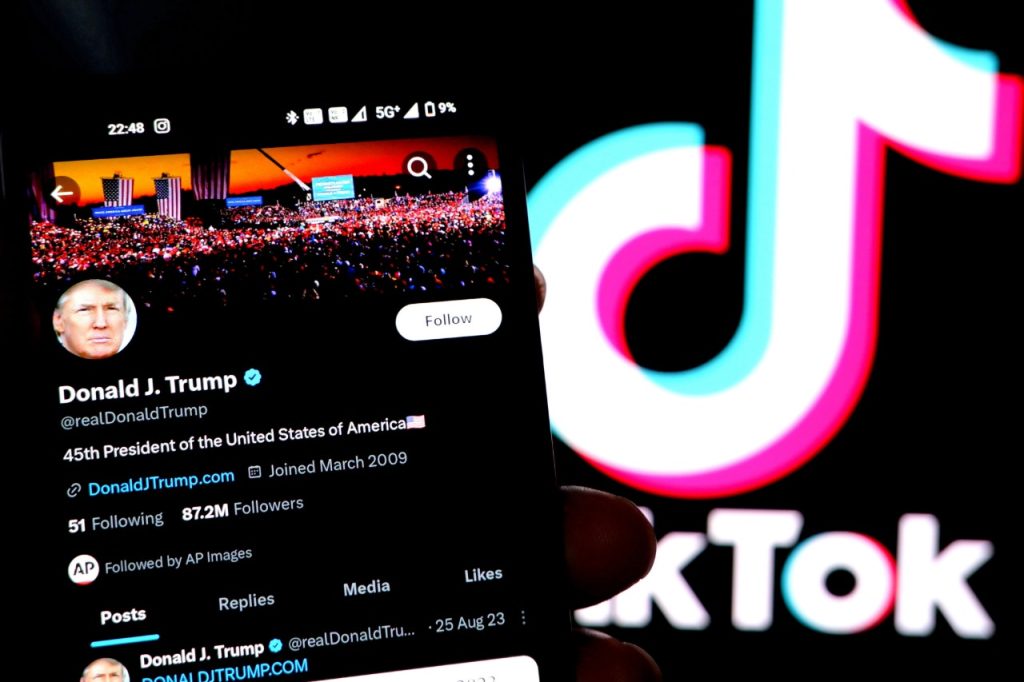The Supreme Court is currently grappling with a complex case involving the popular social media platform TikTok, its Chinese ownership, and the delicate balance between national security concerns and First Amendment rights. The case revolves around the Protecting Americans from Foreign Adversary Controlled Applications Act, enacted by Congress in April 2024, which mandates that TikTok either divest from its Chinese parent company, ByteDance, or face removal from U.S. app stores and hosting services. This legal battle has far-reaching implications for the approximately 170 million American TikTok users and could set a significant precedent for future regulation of foreign-owned technology companies operating within the United States.
At the heart of TikTok’s defense is the argument that the forced choice between divestiture and a ban infringes upon First Amendment protections. They contend that the law represents an overreach by the government, stifling free expression and access to information on a platform widely used for communication, entertainment, and even political discourse. Furthermore, TikTok’s legal team asserts that Congress neglected to explore less restrictive measures before resorting to the drastic step of a potential ban, suggesting that alternative solutions could address national security concerns without impinging on constitutional rights.
The Biden administration, however, counters that the law’s focus is squarely on the potential national security risks stemming from ByteDance’s control over the app, rather than the content shared on the platform. They argue that this distinction is crucial, as the government’s concern lies with the potential for data collection, manipulation, and influence by a foreign entity, not with restricting the speech of American users. The administration emphasizes that the law does not directly censor content or impose viewpoint-based restrictions, therefore, it does not meet the criteria for a First Amendment violation. This argument hinges on the premise that the government has a legitimate interest in protecting national security, even if it necessitates restrictions on foreign ownership of critical technology infrastructure.
The Supreme Court’s expedited hearing and impending decision highlight the urgency and significance of this case. The justices face the formidable task of weighing the competing interests of national security and free speech, seeking a resolution that upholds constitutional principles while addressing legitimate concerns about foreign influence. The outcome of this case will undoubtedly shape the future landscape of online platforms and the extent to which the government can regulate foreign-owned technology companies operating within U.S. borders.
The potential ramifications of the Supreme Court’s decision are multifaceted and far-reaching. A ruling in favor of the ban could set a precedent for increased government scrutiny and regulation of foreign-owned tech companies, potentially leading to similar restrictions on other platforms. This could have a chilling effect on international investment and collaboration in the tech sector, potentially stifling innovation and limiting consumer choice. Conversely, a ruling against the ban could reinforce the importance of First Amendment protections in the digital age, signaling a reluctance to curtail access to online platforms absent a clear and present danger to national security.
Ultimately, the Supreme Court’s decision will grapple with the fundamental tension between national security and individual liberties in the digital era. The justices must navigate the complexities of foreign ownership, data security, and the role of online platforms in public discourse. Their ruling will not only determine the fate of TikTok in the United States but also establish a crucial legal framework for future cases involving the intersection of technology, national security, and the First Amendment. The court’s decision, expected within nine days of the oral arguments, will undoubtedly be closely watched by policymakers, technology companies, and citizens alike, as it will significantly impact the future of online communication and the balance between security and freedom in the digital realm.


